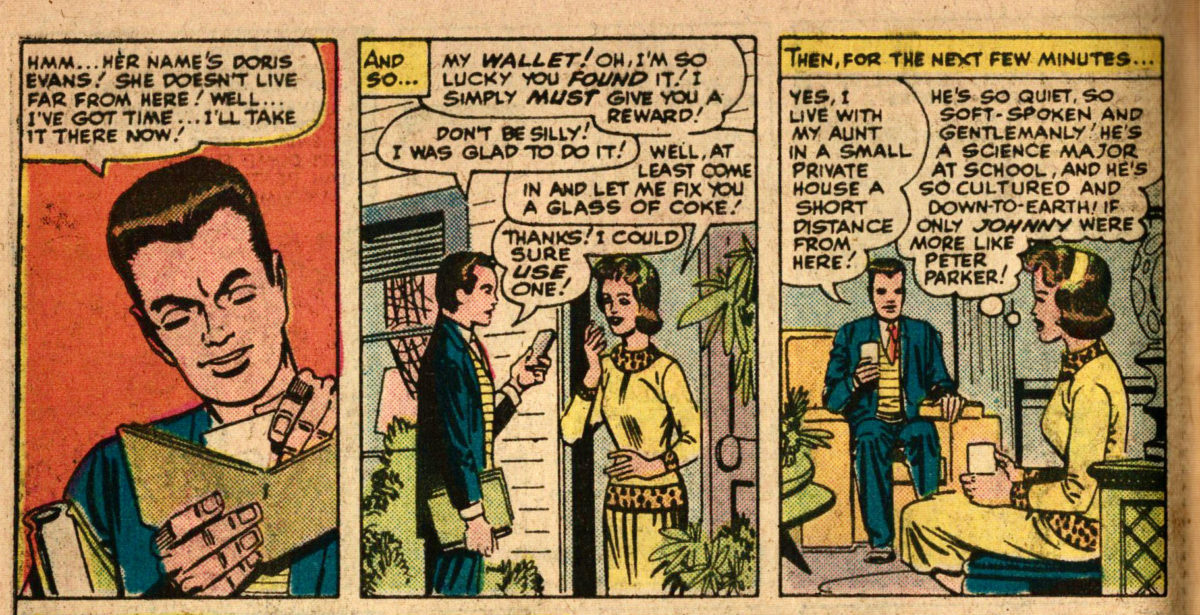Featuring: Avengers
Release: August 10, 1965
Cover: October 1965
12 cents
Written with the usual Stan Lee madness!
Drawn with the usual Don Heck magnificence!
Inked with the usual Wally Wood magic!
Lettered with the usual Artie Simek mistakes!
20 pages
| Previous | #429 | Next |
|---|---|---|
| Strange Tales #141, Story B | Reading order | Avengers #22 |
| Avengers #20 | Avengers | Avengers #22 |
When I took command, the Avengers were at the height of their power, their prestige, their fame! And now– look what I’ve done!

Yesterday was Don Heck’s birthday! He would have been 94 years old, but he passed away at the age of 66.
The story opens with a lot of chastising.
Well, first Hawkeye is fixing a fuse. The narrator seems to mock that the artist chose to begin the story in such a “prosaic” way. Stan, if you want the stories to open differently, you have to write the stories.

The machinery seems unusually detailed. I suspect that has a lot to do with Wood’s inking.
Continue reading “Avengers #21”































